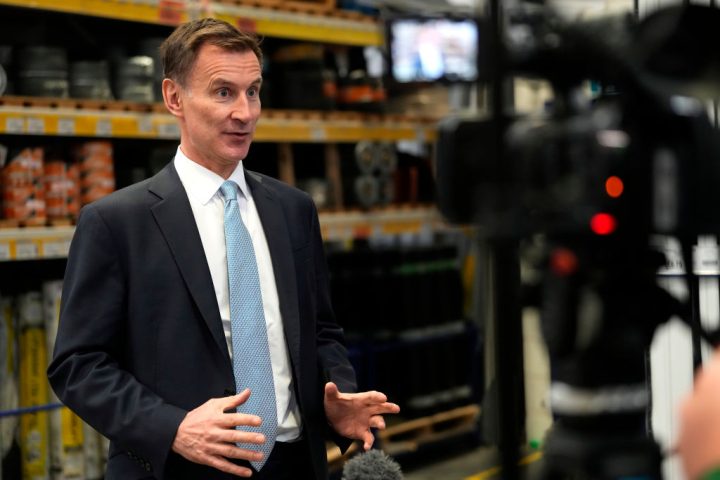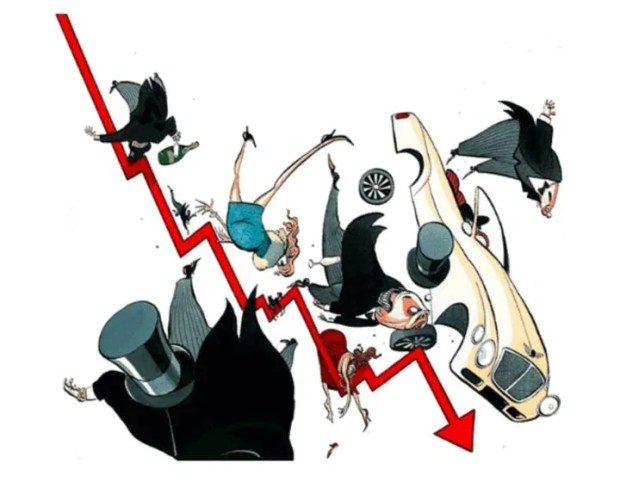Could Jeremy Hunt really abolish employee National Insurance (NI)? His additional 2p cut announced in yesterday’s Budget seems to be the start of what the Tories might offer up in their election manifesto. Hunt has now suggested the end goal would be to merge income tax with employee NI, helping to simplify the tax code. The point was further made by Rishi Sunak at the Centre for Policy Studies’ 50th anniversary dinner last night: that it should be the Conservative party’s ‘plan, long term, to end that unfairness’ of taxing income twice.
But is this in any way possible? To abolish employee NI comes with a price tag of roughly £50 billion – even more than the £40 billion which will be raised by freezing tax thresholds, which the Tories haven’t ditched despite pulling millions of workers into paying more tax. Already there is speculation about how this might be affordable: would income tax rise? Would employer NI payments (which are bigger, and bring in more revenue than employee NI) be pushed up?
Don’t get distracted, is the message from the Institute for Fiscal Studies (IFS) this morning, which hosted its post-Budget briefing. Any pledge to abolish employee NI ‘is not worth the paper it’s written on,’ says IFS Director Paul Johnson, ‘unless it’s accompanied by some sense’ of delivery.
Chances of that delivery looks highly unlikely, at least right now, given the current state of the public finances. ‘Nothing that Jeremy Hunt did yesterday, nor indeed anything that the OBR said, changes anything very significantly,’ noted Johnson. The tax burden remains on track to reach a near-record post-war high; the debt to GDP ratio is at its highest level in 70 years. ‘Tax revenues will have risen by a record amount as a share of national income over this parliament’ and yet it never seems to be enough, with ‘very obvious signs of strain’ in so many areas of public services.
The IFS dug into the spending side of the ledger this morning, many details of which were largely left out in yesterday’s Budget. Despite speculation that the Chancellor would take an axe to public service spending, Hunt announced that he would stick with his plans from the Autumn Statement for day-to-day public spending to rise in the next parliament by 1 per cent a year in real terms. According to the IFS, this means cuts of £20 billion to non-protected spending by 2028. The IFS’s Research Economist Bee Boileau calculates that we will see an increase of real-terms growth in the range of 2 per cent to 2.9 per cent for protected areas, including the NHS, defence and schools. But non-protected areas in England (courts, local government) could be looking at real-terms cuts that range between 1.9 per cent and 3.5 per cent.
These cuts are smaller than the ‘austerity’ cuts that took place between 2010 and 2015 – which were on average around 6 per cent – but Boileau notes that many of those cuts (or efficiency gains) were one-off changes that will be difficult to repeat. And would any government, Tory or Labour, really have the political nerve to make such cuts? ‘If I am sceptical about Mr Hunt’s ability to stick to his current spending plans,’ said Johnson, ‘I am at least that sceptical that Rachel Reeves will preside over deep cuts in public service spending.’
The next parliament is unlikely to get any easier: indeed the pressures of the national debt will only grow, at a time when the public is likely to be demanding more investment in public services and potentially an ease in their tax burden, too. There will be no easy options for whoever ends up in No. 11: but that is not a truth either party is willing to engage with just yet. Johnson called it a ‘conspiracy of silence’ between the two parties this morning. Both would prefer to go into an election making lofty promises, rather than having to discuss potential tax hikes, spending cuts, or the reforms to improve economic growth, to get the UK’s ever-growing debt burden under control. That silence is unlikely to break anytime soon.
Got something to add? Join the discussion and comment below.
Get 10 issues for just $10
Subscribe to The Spectator Australia today for the next 10 magazine issues, plus full online access, for just $10.





















Comments
Don't miss out
Join the conversation with other Spectator Australia readers. Subscribe to leave a comment.
SUBSCRIBEAlready a subscriber? Log in